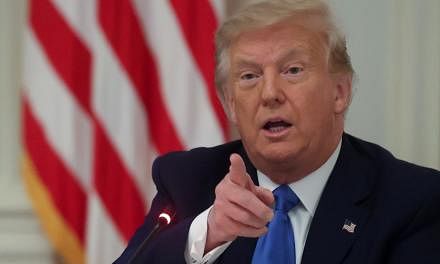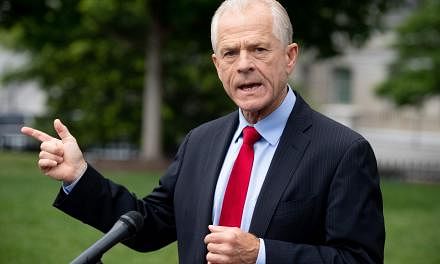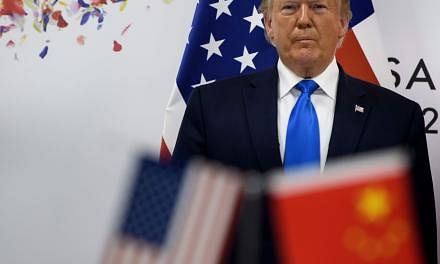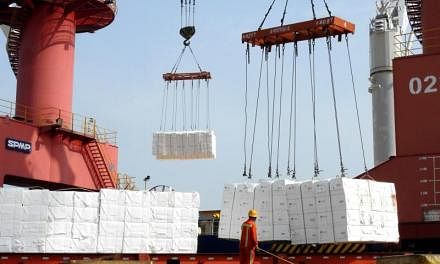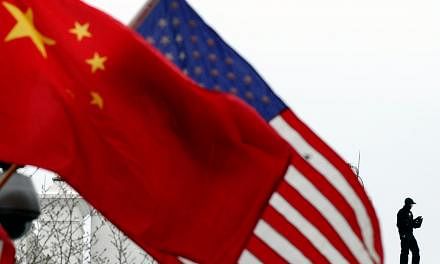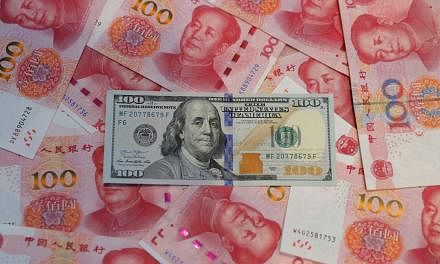SINGAPORE - It has been widely characterised as trade tensions or a trade war, but the fight between the United States and China is not really about trade, a former World Bank economist has said.
The tension is mainly due to the different political and economic systems that the two countries have and to their very different approach to things, said Dr Yukon Huang, a senior fellow at the Washington-based Carnegie Endowment for International Peace.
"Fundamentally, (the US is) a very strong developed economy dealing with an economy which, by (China's) own definition, is still a developing one," he told local reporters after giving a talk on "Resolving the US-China trade impasse" at the East Asian Institute on Wednesday (June 12).
"If you ask for a solution that fits both, it's not possible."
The US and China are locked in an escalating trade war involving tit-for-tat tariffs on each other's goods that has roiled markets and hurt global growth.
All eyes are on whether US President Donald Trump will meet Chinese President Xi Jinping at the Group of 20 summit in Osaka later this month to restart talks that broke down last month.
However, Dr Huang believes that the differences between the two largest economies can only be sorted out by a global system of rules and institutions over time.
"I don't think two heads of states getting together can solve these problems," he said.
He stressed that trade deficits are not the crux of the problem as these are not a sign of whether a country is doing well or poorly.
The US is likely to have a larger trade deficit primarily because its economy is doing well, and it is importing more, he said.
The second reason is due to the recent major tax reform that increases the country's budget deficit. This also invariably leads to a larger trade deficit.
"Neither of these two factors relate to China," he said, noting that yet, the negotiations between the two countries are based on the assumption that it is about trade and China is responsible for the US' problems.
"Trade needs to be looked at on a multilateral basis. It's your overall balances across countries, not with any specific country, that matter," he added.
Dr Huang agrees with the longstanding Western criticism that China needs to do more to improve its environment for foreign investments, protect intellectual property rights and encourage more companies to enter the market.
But he contends that this is something that takes time to resolve.
From China's perspective, it cannot guarantee that such reforms can be rolled out perfectly. Yet the US has demanded clauses that will allow it to unilaterally levy punitive tariffs if it deems China not to have honoured their deal, he noted.
"This is a problem and this is one of the reasons why the negotiations have broken down," he said.
On the issue of technology thefts, Dr Huang thinks that the issue lies with cases where the rules and guidelines are not clear.
This is where negotiations are needed.
"But you can't negotiate it bilaterally because it actually affects everybody. And the basic point is, rules are dependent upon the nature of these economic systems, which are different," he said.
"So you need something like the World Trade Organisation, or Bilateral Investment Treaties, where you have a process of being able to negotiate and adjust over time," he added.
"You can't resolve this tomorrow, or even next month. You need some process by which you slowly adjust and you do this not with punitive tariffs and punishment," said Dr Huang.



